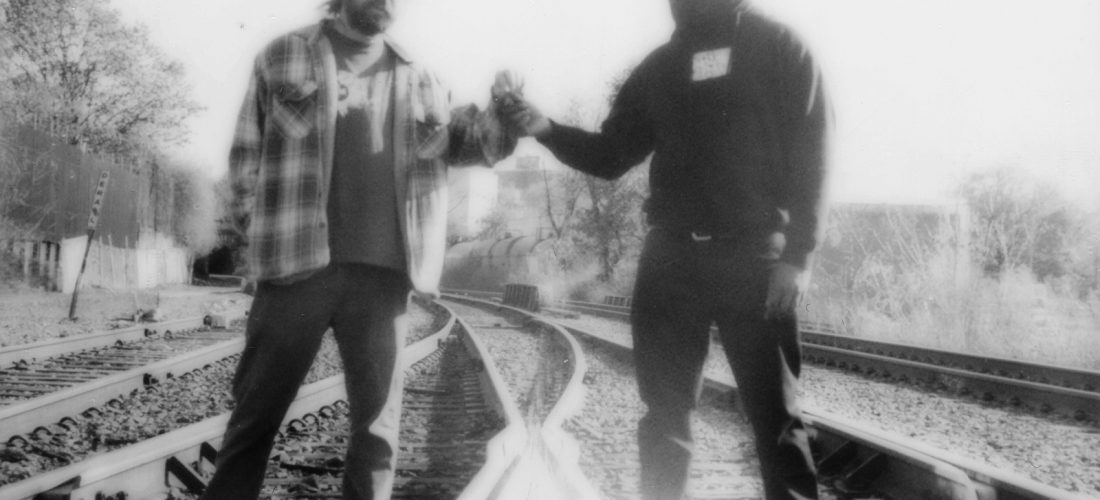billy woods’ ‘Maps’ is the Kind of Album That’s Designed to Get You Lost
For much of the past decade, Brooklyn rapper billy woods — he stylizes his name in lowercase letters — has reigned as an unlikely hero of left-of-center hip-hop. A protégé of influential Cannibal Ox rapper Vordul Mega, he emerged just as the subterranean New York scene centered around critically lionized label Definitive Jux began to fragment. Unlike many of his peers who disappeared into CD-R obscurity, woods kept grinding with his Backwoodz Studios imprint. His 2012 breakthrough, History Will Absolve Me, arrived just as listeners — prepped by Odd Future, whimsical songwriters like Busdriver and lo-fi criminologists such as KA and Roc Marciano — were ready to engage with the highly stylized songs woods composes.
Enigmatic to a fault, woods has never publicly released his government name and only agrees to photographs if his face is blurred out. (Incredibly, and despite tours across North America and Europe, audiences have mostly complied.) He addresses heady themes, from trying to survive psychologically in a rapacious capitalistic society to the aftereffects of colonialism in the African Diaspora. He has an uncanny way of rapping in a clear Brooklynese accent while stacking so many details that the listener is left dizzy, unsure what they all mean.
Maps marks woods’s second full-length collaboration with Kenny Segal, who began his career in the early Aughts as a beatmaker aligned with L.A.’s influential Project Blowed camp. An unspoken theme of the ongoing avant-rap renaissance is that many of its top practitioners are in their thirties and forties, with layered rhymes and jagged, unpredictable sounds reflecting years spent refining one’s craft. Woods’ songs betray a markedly different sensibility than, say, NLE Choppa turning up the party on “Slut Me Out.” But he isn’t a pretentious aesthete. He references Future on “Baby Steps,” comparing himself to the Atlanta rapper’s I Never Liked You album art as he dozes off in an Uber. And he cracks wise on “Kenwood Speakers” about boring a dinner party to death: “I whispered in the host’s ear all night/I hear they found him in the morning, hose run from the exhaust pipe.”
Segal’s production is jazzier than Hiding Places, his 2019 pairing with woods, and often employs clear melodies that invite the listener to lean in closer. “Soft Landing” is exactly that, blending sludgy bass booms with acoustic guitar while woods chants a chorus inspired by Nina Simone’s “Feeling Good.” “Soundcheck” unfolds like a fusion session; “The Layover” unfurls the hissy, buttery flow of sampled bop piano. Segal switches between these prettier textures and the brittle, distorted beat squalls for which woods is well-known. Yet overall, Maps is less severe than Hiding Places, which excavated the tensions of urban living with punchy humor and ear-ringing sound designs. Essentially, it serves as a travelogue for a blossoming indie star, compiling the misadventures, curiosities, and indignities he endured while on tour. “This is a post-pandemic album,” he recently told Rolling Stone’s Anthony Malone. “[It’s] the quintessential hero’s journey, or any type of journey that involves getting back home.”
A handful of vocalists drop in, including Aesop Rock, Backwoodz group ShrapKnel, and Elucid, the latter woods’s partner in the long-running duo Armand Hammer. Danny Brown talks glorious shit on “Year Zero.” “You the type of nigga to get lipo,” he cackles. Samuel T. Herring of Future Islands delivers a nice chorus on “Facetime” as woods describes navigating missed calls and his own smoked-out alienation, “feeling like the help” amidst “a party outside/Some half, some overdressed/They was going off during Playboi Carti’s set/Now they in the halls partying.”
As a mellow and slightly bemused series of vignettes, Maps doesn’t pulse with the same passion as Aethiopes, one of two albums woods released last year and arguably a high point in his growing catalog. (His other 2022 album, Church, felt like a solid comedown after the Aethiopes peak.) In this sense, woods fulfills the literary expectations he’s often saddled with. Each work is a different chapter in an impressively consistent collection, and Maps finds him in repose, taking stock of the world of him. “We’re going to need more weed,” he says on “Houdini.” “I can tell you that.”
